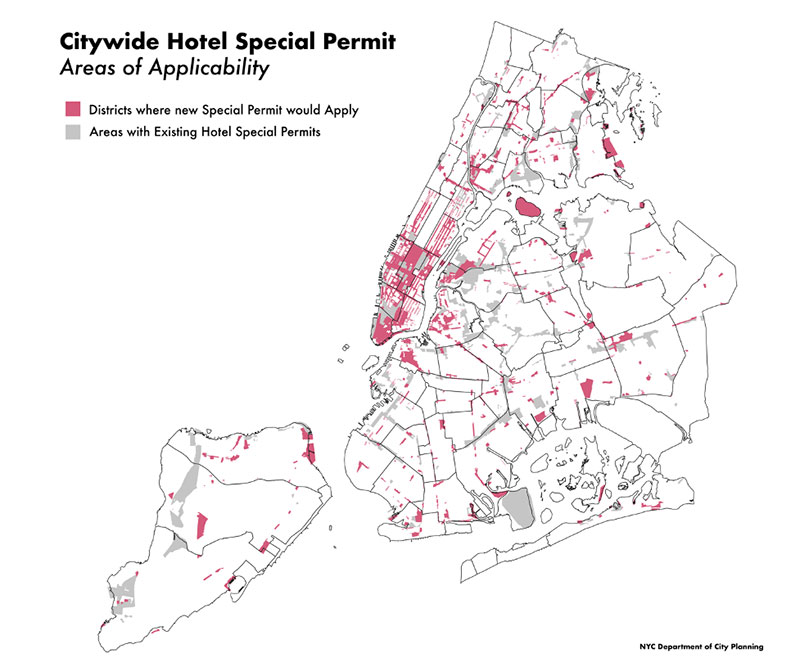By Cole Masler
Hotels are a vital part of New York City’s economy, accounting for approximately $13 billion of revenue per year. In recent years, however, the City Planning Commission has adopted certain amendments to New York City’s Zoning Resolution in an attempt to curtail hotel development. These changes have been top-of-mind for owners and developers involved in the New York City hotel real estate market.
One such amendment, passed in 2018, is known as the M1 Hotel Text Amendment. This zoning amendment established the need for a special permit in order to build new hotels, motels, tourist cabins, and boatels in light manufacturing (M1) districts throughout the city. Hotel development in M1 zoning districts became much more prevalent in the last decade given that the availability of buildable land had decreased and the zoning framework surrounding M1 districts was favorable for hotel construction. Aspects of the zoning framework that make M1 district hotel development more favorable are as follows:
- Height and setback regulations allow for tower development, which is an efficient hotel layout
- Hotels can then be developed on small, narrow lots, which are much more widely available
- The parking and loading requirements are minimal
It is worth noting that neither existing hotels nor hotel developments in the construction pipeline prior to the adoption of this amendment were required to obtain a special-use permit.
Furthermore, the most recent amendment to New York City’s Zoning Resolution was passed on December 9, 2021, and is known as the Citywide Hotels Text Amendment. This amendment took the M1 Hotel Text Amendment one step further by requiring special permits in commercial, mixed-use, and paired M1/R districts.
Additionally, the amendment requires that all new hotel construction incorporates the use of unionized construction workforces, and the management staff of newly built hotels must adhere to collective bargaining agreements for hourly workforces in the operational departments (rooms, food and beverage, and property operations and maintenance). Any aspects of the operation that are leased to external operators, including a food and beverage outlet, are exempt from this requirement.
This special-permit requirement overrides any other special-permit hotel requirements, with the exception of the special-permit provisions that apply in M1 districts. The graphic below illustrates the areas where these special permitting requirements apply.
Source: NYC Department of City Planning
As shown, the borough of Manhattan has the most areas affected by this zoning amendment. However, the number of rooms anticipated to come online in Manhattan in 2023 outpaces the number for 2022, largely because many of these development projects were in the construction pipeline prior to the adoption of the zoning amendments and suffered extended COVID-related construction delays.
For more information, or to discuss your specific project, please feel free to contact Cole Masler at (516) 492-8595 or cmasler@hvs.com.


